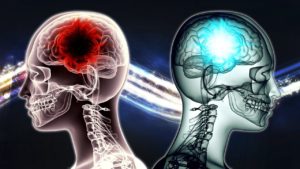The truth is…we weren’t designed to experience or have to cope with trauma. We also weren’t created to struggle with what often results because of trauma….divorce, depression, anxiety, suicide, addiction, codependency, and many, many other painful, unwanted things that penetrate our lives. God created us to be in a whole and intimate relationship with Him, but because of sin, we are exposed to various experiences that are traumatic. But we have a choice. We have a choice to face our sin and the sins of others in one of two ways—healthy or unhealthy. We can choose to surrender, understand, work through, and overcome. Or we can choose to remain in hurt, shame, and fear.

At CDC, we are passionate about educating both our clients and our community on the impact of trauma in peoples’ lives. Our goal is to help the hurting heal and live restored lives in truth and freedom. When thinking of trauma, it is easy to categorize things such as war or combat, natural disasters, catastrophic accidents, sexual abuse, or physical abuse as traumatic. Those types of traumatic events are what we call “Big ‘T’ Trauma.” But what about everything else in life that does not fall into the “Big T” category? Those things that are emotionally overwhelming, distressing and often times debilitating?
We believe in taking a new approach to trauma education and treatment where we have the ability to promote healing and restoration for all people in all walks of life. At CDC, we believe that trauma can be best defined as anything not nurturing. When we say that to most people, it is typical that we get a puzzled look. When we mention events such as divorce, infidelity, difficult parental relationships in childhood, verbal abuse, emotional abuse, addiction, financial worries, legal issues, or bullying, we usually see a significant shift in understanding. The reason for that shift is because most likely, we all have experienced some degree of this and can relate to the pain, hurt, and shame that follows. These are what we call “Small ‘T’ Trauma.” Often times we do not understand how these “Small T’s” affect us in daily life in our relationships until we acknowledge that what we have been through is traumatic.

One of the most effective therapeutic interventions used to treat trauma is Eye Movement Desensitization and Reprocessing (EMDR). We believe in it so much that all of our clinicians at CDC are trained in EMDR. EMDR is an evidence based treatment approach to treat Posttraumatic Stress Disorder as well as various other issues such as panic attacks, complicated grief, disturbing memories, phobias, pain disorders, eating disorders, anxiety, addiction, and painful sexual or physical abuse memories.
EMDR was developed in 1987 by Francine Shapiro by a chance observation that eye movements can reduce disturbing memories or thoughts. When a person has experienced any form of trauma (remember…anything not nurturing), their brain cannot process the information adequately. Because the brain isn’t able to fully process the memory or thought, it becomes “frozen in time.” For example, have you ever had to talk about something really difficult in your life? When thinking back and talking about that memory, did you feel emotional overwhelm, shame, and pain? That’s a traumatic memory that is unprocessed.
By the use of eye movements in EMDR, the processed and unprocessed information in the brain connect, and a person is able to create meaning about the memory and themselves in relation to the memory. A person is able to “make sense” of what happened to them. Often times after processing memories with EMDR, clients report that details of the memory fade, and they feel significantly less emotional in relation to the memory.
After trauma occurs, we often develop negative beliefs about who we are as people. We live in pain, shame, and fear that translates into feeling unsafe, unlovable, and unworthy. The result of processing traumatic memories with EMDR is changing those negative beliefs into beliefs that are rooted in truth. I am safe. I am loved. I am worthy. If you haven’t had anyone in your life to teach and help you believe those truths or those truths have been skewed through experiencing trauma, we hope that you reach out for help. You are not alone. We believe healing, restoration, and freedom are possible for you and for our community.

If you have any questions related to trauma or EMDR treatment, please reach out to us, and we would love to help you!

-Whitney Voss, M.S., PLPC, CSAT-Candidate
EMDR Provider


Many thanks for sharing this fine piece. Very interesting ideas! (as always, btw)
can you buy stromectol over the counter ivermectin 50ml – stromectol ivermectin
http://stromectolabc.com/ stromectol over the counter
buy ivermectin canada stromectol ivermectin pills canada
can you buy zithromax over the counter buy zithromax without prescription online how to get zithromax
https://azithromycin1st.com/ zithromax 250
how to get zithromax online generic zithromax 500mg india zithromax canadian pharmacy
zithromax 500 mg zithromax buy online buy zithromax 1000 mg online
https://azithromycin1st.com/ zithromax prescription online
zithromax buy online no prescription where can you buy zithromax generic zithromax azithromycin
zithromax cost buy zithromax 500mg online buy azithromycin zithromax
https://azithromycin1st.com/ zithromax online pharmacy canada
where can i buy zithromax medicine zithromax cost australia zithromax capsules australia
zithromax 250 price where can i get zithromax zithromax over the counter canada
https://azithromycin1st.com/ buy azithromycin zithromax
zithromax over the counter zithromax 250 zithromax pill
buy cheap generic zithromax zithromax cost australia zithromax 250 mg tablet price
https://azithromycin1st.com/ zithromax for sale online
zithromax price south africa zithromax for sale 500 mg buy cheap generic zithromax
buy prescription drugs from india prescription drugs online without prescription drugs online
https://without-prescription-online.online/ canadian drugs
canadian pharmacy online dog antibiotics without vet prescription ed meds online without doctor prescription
anti fungal pills without prescription pain medications without a prescription canadian pharmacy
https://without-prescription-online.online/ online prescription for ed meds
ed meds online without doctor prescription online prescription for ed meds canadian pharmacy
cialis 20mg for sale – cialis online buy cialis 5mg sale
buy paxlovid online paxlovid for sale buy paxlovid
https://myalliancehealthcare.online/ molnupiravir for sale
buy molnupiravir online cost of molnupiravir molnupiravir
paxlovid price where can i get paxlovid paxlovid
https://apollobgshospitalsmysore.online/ paxlovid for sale
molnupiravir where can i get molnupiravir molnupiravir price
where to get molnupiravir cost of molnupiravir buy molnupiravir
https://apollobgshospitalsmysore.online/ buy paxlovid online
molnupiravir india molnupiravir cost of molnupiravir
buy molnupiravir online molnupiravir for sale cheap molnupiravir
https://myalliancehealthcare.online/ molnupiravir india
molnupiravir molnupiravir india cost of molnupiravir
where can i get paxlovid paxlovid buy paxlovid online
https://apollobgshospitalsmysore.online/ purchase paxlovid
molnupiravir india cheap molnupiravir cost of molnupiravir
hydroxychloroquine pills – buy plaquenil 400mg online plaquenil ca
I would like to thank you for the efforts you’ve put in writing this blog. I’m hoping the same high-grade web site post from you in the upcoming as well. Actually your creative writing skills has inspired me to get my own blog now. Actually the blogging is spreading its wings quickly. Your write up is a good example of it.
stromectol for humans: ivermectin – ivermectin buy
http://stromectolst.com/# ivermectin purchase
ivermectin over the counter stromectol order ivermectin stromectol
buy ivermectin 3mg online – stromectol order online ivermectin for humans walmart
ivermectin canada: cheap stromectol – where to buy ivermectin
http://stromectolst.com/# stromectol 3 mg tablets price
cost of ivermectin pill stromectol for sale cost of ivermectin 1% cream
cephalexin oral – buy clindamycin online cheap erythromycin 500mg price
buy fildena 100mg pill – purchase disulfiram disulfiram usa
https://stromectolis.com/# stromectol for humans
https://stromectolis.com/# ivermectin cream 5%
https://stromectolis.com/# ivermectin buy online
https://stromectolis.com/# can you buy stromectol over the counter
https://stromectolis.com/# stromectol price us
rhinocort tablet – buy seroquel 100mg online cheap buy ceftin 250mg online
https://stromectolis.com/# stromectol pill
bimatoprost for sale online – oral robaxin 500mg buy generic trazodone 50mg
https://stromectolis.com/# ivermectin oral
sildenafil 50mg pill – viagra 100mg cost purchase zantac generic
tadalafil online buy – tadalafil usa ivermectin 6 mg for humans for sale
online clomid clomid purchase – clomid order online
https://clomiphene1st.com/# clomid purchase
order tadalafil 40mg online – buy ed pill medicine for impotence
buy doxycycline cheap doxycycline 100mg capsules – doxycycline mono
https://doxycyline1st.com/# where can i get doxycycline
chumba casino – prednisone 5mg over the counter brand prednisone 10mg
buy doxycycline buy doxycycline hyclate 100mg without a rx – odering doxycycline
https://doxycyline1st.com/# doxycycline 100mg dogs
prednisone 5mg brand – prednisone 5mg brand accutane 10mg ca
amoxil 1000mg oral – cheapest viagra buy viagra 150mg sale
how to order doxycycline buy doxycycline hyclate 100mg without a rx – buy doxycycline online
https://doxycyline1st.com/# doxycycline
can you buy viagra over the counter over the counter viagra substitute walgreens what if a woman takes viagra
where can i buy viagra over the counter how long does it take for viagra to take effect viagra side effects alcohol
cost zithromax 500mg – methylprednisolone 8mg without a doctor prescription medrol 8 mg tablet
paxlovid clinical trial paxlovid drug interactions list paxlovid chemical structure
buy ivermectin for humans australia buy minocycline 100 mg online buy ivermectin pills
buy baricitinib 2mg pill – purchase dapoxetine priligy 30mg cheap
merck covid pill buy molnupiravir online molnupiravir 800 mg
buy metformin without prescription – order glucophage generic buy lipitor 80mg for sale
plaquenil 200 mg plaquenil stock stopping plaquenil abruptly
norvasc 10mg generic – buy norvasc 10mg sale omeprazole 10mg ca
where to buy molnupiravir molnupiravir merck india molnupiravir india price
purchase metoprolol sale – buy tenormin pill order tadalafil 5mg for sale
cialis 40mg – viagra for women brand viagra
cialis overnight shipping canada online generic cialis cialis us pharmacy
ivermectin 3 mg pills for humans – ivermectin online ivermectin 6 mg otc
women taking cialis cialis canada generic over the counter cialis
order clomid 100mg pill – buy zyrtec 5mg pills order zyrtec 10mg generic
ivermectin fda label pierre khoury ivermectin ivermectin for swine
order clarinex 5mg for sale – purchase clarinex online cheap order aristocort 4mg online cheap
scabies ivermectin ivermectin for ear mites in dogs ivermectin for sale for humans
buy misoprostol 200mcg generic – prednisolone 10mg generic synthroid medication
ivermectin lotion azelaic acid metronidazole ivermectin nih approved ivermectin
sildenafil 50mg cost – sildenafil 100mg price buy neurontin 800mg pill
cialis, levetra, viagra for less female viagra prank viagra natural para hombres
buy diltiazem 180mg online cheap – order generic zyloprim buy zovirax online
where to buy viagra online viagra oral
amoxicillin 500mg buy online canada amoxicillin 500mg price canada amoxicillin 800 mg price
40 mg tadalafil vardenafil tadalafil
atarax 10mg oral – order hydroxyzine 10mg without prescription order crestor online cheap
cost of clomid uk clomid prices where can i buy clomid tablets in south africa
ivermectin 0.5% lotion ivermectin malaria
ivermectin buy online buy liquid ivermectin
sildenafil coupon alcohol and sildenafil
tadalafil 50 mg tadalafil generic vs brand
how to buy clomid online clomid price in india order clomid online
thuoc tadalafil 20mg cialis generico tadalafil 10 mg
sildenafil 25mg for sale – buy lisinopril 10mg order flexeril 15mg online cheap
buy cialis in davenport fl drug canada cialis with prescription cialis at canadian pharmacy
brand viagra – cialis for sale online cialis 20 mg
toradol tablet – tizanidine 2mg oral baclofen 10mg without prescription
average price of clomid clomid 100mg price in india clomid otc price
colchicine us – buy colchicine 0.5mg sale atomoxetine brand
sildenafil 100mg sale – methotrexate canada plavix 150mg uk
stromectol liquid ivermectin 0.2mg
ivermectin lice oral order stromectol online
ivermectin 9mg cost of ivermectin pill
buy generic viagra 100mg – buy plavix generic cheap plavix
stromectol brand stromectol drug
ivermectin topical stromectol 0.1
ivermectin purchase ivermectin 50 mg
purchase nexium pill – order promethazine online cheap phenergan ca
ivermectin oral 0 8 ivermectin 12
ivermectin 3mg tablets price ivermectin 3mg tab
stromectol xr ivermectin 80 mg
cialis 10mg us – Discount cialis without prescription buy tadalafil 40mg generic
stromectol stromectol for humans
buy provigil 200mg pills – canadian online pharmacies medication for ed
cialis generic online uk cialis tabs does cialis make you last longer in bed
isotretinoin 20mg pills – azithromycin 250mg drug zithromax 250mg oral
viagra vs. cialis best price on cialis
cialis with dapoxetine paypal is online cialis safe how do you take cialis
stromectol 3 mg ivermectin nz
order lasix online – doxycycline 200mg over the counter sildenafil us
ivermectin tablets order buy ivermectin
stromectol ireland stromectol
how to buy ivermectin ivermectin for kids ivermectin 80 mg
cialis 5mg cost – tadalafil drug buy viagra pills
tadalafil 30mg cialis 2.5 mg
cialis 10mg oral – buy cozaar 25mg without prescription oral warfarin 5mg
ivermectin for scabies dosage ivermectin shampoo ivermectin inflammation
oral topamax – oral topamax 100mg buy imitrex 25mg pill
que es tadalafil cialis vs tadalafil generic
how much is generic cialis cialis when to take cialis generic alternative
That night, I did a whole spa routine to make sure my skin was soft and my ass was stretched and wet. I was wearing nothing but a jockstrap as I was told. Waiting by the door on fourth. My heartbeat was so fast as my mouth was dry. I heard the footstep approaching. I left the door unlocked as one of the instructions I was received from daddy. He stepped in with his size 10 Christian Loublitine loafer where my eyes were going up from there. When I made eye contact with daddy, daddy slapped me across the face and said, “Bad boy, Where the fuck are your sneakers as I told you to wear tonight.” I was trembling and said in a very low voice, “ sorry daddy I fooooorgot.”
20 mg sildenafil sildenafil canada
cost dutasteride – buy tadalafil pills tadalafil 20mg uk
cialis canada п»їcialis
buy viagra on line discount viagra
cialis cvs cialis viagra levitra samples cialis debit card
Hello my loved one! I wish to say that this post is amazing, great written and come with almost all significant infos. I’d like to see extra posts like this. forums.qrecall.com
combitic global tadalafil tadalafil 5 mg brands in india
sildenafil 50mg – buy generic tadalafil 10mg cheap cialis 5mg
buy pills for erectile dysfunction – cheap prednisone 20mg prednisone 20mg tablet
where to get clomid medication how much is clomid in south africa clomid 40 mg
can you buy female viagra over the counter cost of female viagra
freds pharmacy store Trazodone
buy isotretinoin 10mg – buy amoxil 1000mg generic amoxicillin online buy
side effects of tadalafil maximum daily dose of tadalafil
doxycycline 30 doxycycline 40 mg generic cost buy doxycycline
order lasix pill – buy zithromax 500mg sale zithromax online
canadian government approved pharmacies buying from canadian pharmacies
levitra vs viagra vs cialis alcohol levitra birth control
order amoxicillin no prescription amoxicillin 250 mg price in india amoxicillin 250 mg capsule
doxycycline order online – buy doxycycline 200mg generic cost chloroquine 250mg
generic cialis best price generic cialis 30 pills 20mg
sildenafil 90mg viagra buy in australia
online pharmacy canada viagra reputable overseas online pharmacies
doxycycline capsules india online doxycycline doxycycline 100mg tablets nz
cialis blaack cialisis online
doxycycline 100 mg pill doxycycline no prescription doxycycline nz cost
ivermectin tapeworm ivermectin chewy
cipa canadian pharmacies canadian mail order pharmacies
ivermectin injectable for horses ivermectin 6mg
generic tadalafil 40 mg tadalafil is not for consumption in united states
amoxicillin no prescription can you buy amoxicillin over the counter canada where can i get amoxicillin 500 mg
canadian pharmacy viagra where can you purchase viagra
clomid in mexico buy clomid citrate where to get clomid medication
viagra gel tabs buy viagra generic canada
levitra fda levitra discount
does cialis make you bigger viagra vs levitra vs cialis reviews
levitra prices at cvs levitra online overnight delivery
buy ed pills online carprofen without vet prescription best ed medicine
generic cialis online australia brand cialis online pharmacy
rite aid pharmacy store closings us pharmacy
viagra vs cialis bodybuilding prescription drugs without prior prescription erection problems
provigil 200mg oral – provigil 200mg uk sildenafil 150mg for sale
online pharmacy phentermine celexa canadian pharmacy
elmiron canadian pharmacy canada drugs direct reviews
levitra canadian pharmacy Forxiga
best pills for ed – pills for ed prednisone over the counter
ed symptoms male enhancement products pet meds without vet prescription canada
united rx pharmacy canadian pharmacies that sell and ship insulin to usa
cheapest pharmacy for prescriptions without insurance pfizer viagra online pharmacy
buy generic accutane 10mg – buy celecoxib 200mg without prescription celecoxib without prescription
dog pharmacy online Topamax
brand tamsulosin – zofran pills aldactone 100mg pills
buying ed pills online ed meds online canada mens erections
order simvastatin without prescription – valtrex 500mg ca essay helpers
legitimate online slots for money – need help writing a paper write my paper for me
what does ivermectin treat in dogs where can i buy ivermectin for humans ivermectin paste for cattle
We are here to offer the best mobile chat applications with a unique user experience and always be with you.
online casino no deposit bonus – finasteride 1mg for sale ampicillin online buy
stromectol from costco stromectol and alcohol buy stromectol 6 mg online
india online pharmacy store discount online pharmacy https://jzpharmacyukj.com/
order cipro 500mg online cheap – cialis for sale online buy cialis sale
erectile dysfunction pills
best ed cialis pills cialis back pain do i need prescription for cialis in usa
Just checked out some of your photos (: i’m really glad i obtained to task darkness you. You’re terrific!
tadalafilo cialis 5 mg
tadalafilo cinfa 20 mg
tadalafilo aurovitas precio
tadalafilo teva comprar
tadalafilo alter 5 mg opiniones
buy sildenafil 150mg online cheap – purchase deltasone generic brand vardenafil online pharmacy
pharmacy class online online pharmacy legal
buy levitra online india levitra 20mg tablets https://xclevitradb.com/
cheap pills online erectile dysfunction pills cheap ed drugs
cialis for sale over the counter cialis usa prescription generiac cialis
darkmarket tor markets
cost of prednisone can i buy prednisone online without prescription prednisone in canada
does stromectol kill nits stromectol tab 3mg stromectol ebay
generic cialis made in america best price for daily cialis when should you take cialis
stromectol australia buy stromectol uk buy stromectol pills
buy prednisolone 5mg generic – buy neurontin 600mg online cheap cheap cialis pills
stromectol 3mg ivermectin pills amazon ivermectin praziquantel
ivermectin ireland ivermectin and alcohol does oral ivermectin kill demodex mites
buy prednisone without prescription buy prednisone online prednisone pills cost
prednisone 20 mg generic purchase prednisone no prescription buying prednisone
cialis australia online shopping best price for daily cialis what makes you harder viagra or cialis
ivermectin ebv ivermectin for humans ivermectin for rosacea reviews
muscle relaxant princeton university store pharmacy
order augmentin online cheap – order cialis pills tadalafil 20mg sale
drugs for ed top erection pills buying ed pills online
buy ed pills cheap ed pills erection pills
propecia 5 mg generic propecia prescription propecia hair
buy bactrim 960mg without prescription – bactrim canada buy viagra 100mg pills
does ivermectin go bad ivermectin for dogs dose buy stromectol uk
online ed pills best ed drugs best ed pills online
cheap pet meds without vet prescription prescription meds without the prescriptions meds online without doctor prescription
stromectol uk buy stromectol buy online stromectol buy online
erection pills viagra online top erection pills cheap ed drugs
ikinci el eşya alanlar arasında birbirinden farklı fiyatlandırmalar söz konusu olabilir.
canadian medications prescription drugs pet meds without vet prescription canada
cephalexin 250mg tablet – order erythromycin 500mg generic erythromycin uk
stromectol 6 mg dosage stromectol for sale stromectol for sale
pet pharmacy american pharmacy store
ivermectin chewy ivermectin apple flavored horse paste ivermectin for cows
stromectol otc stromectol usa stromectol otc
best ed pills natural ed remedies pills erectile dysfunction
non prescription ed drugs cheapest ed pills online erectile dysfunction medicines
buying from canadian online pharmacies recommended canadian pharmacies internet pharmacy no prior prescription
buy generic sildenafil – nolvadex 20mg pills ivermectin
Multi Theft Auto is Open Source. This means anyone can contribute to making Multi Theft Auto even better
stromectol for humans for sale stromectol 12 mg tablets stromectol 3 mg tablets price
order prescriptions online without doctor discount prescription drugs online buy prescription drugs online cheap
canada rx drugs online canadian pharmacies not requiring prescription canadian pharmaceuticals online safe
provigil order buy provigil 100mg for sale
erythromycin fish
modafinil us order provigil 100mg
rhinocort over the counter – order tadalafil without prescription cost disulfiram
buy modafinil for sale buy provigil 100mg pills provigil 200mg us
buy provigil 100mg generic modafinil
provigil buy online order modafinil 100mg pills
stromectol stromectol for humans for sale stromectol price usa
stromectol price usa stromectol pills for humans stromectol for sale
canadian pharmacy world reviews Zanaflex
tadalafil 10mg price best price for daily cialis tadalafil
cefuroxime 500mg drug – cialis 20mg price buy tadalafil 40mg sale
order provigil generic order provigil online cheap brand modafinil 200mg
prescribing stromectol stromectol 12 mg tablets stromectol 3 mg tablets price
purchase modafinil without prescription
tadalafil tablets 20 mg india cialis coupon tadalafil
modafinil pills provigil online buy
modafinil 100mg cheap buy modafinil for sale modafinil 100mg oral
provigil pill
viagra sildenafil citrate tablets 100 mg sildenafil
acillin canada – purchase tadalafil online tadalafil medication
tadalafil best price for daily cialis cialis pharmacy
stromectol for humans for sale stromectol prescribing stromectol
prescribing stromectol stromectol for sale stromectol
modafinil order online
tadalafil without a doctor’s prescription cialis pills cialis coupon
provigil online buy provigil sale
ivermectin overdose cattle stromectol tablets for humans stromectol for humans for sale
stromectol liquid stromectol tablets for humans stromectol tablets for humans
erythromycin overdose https://erythromycin1m.com/#
order generic amoxil – buy vardenafil 10mg online order levitra 10mg online
stromectol 12 mg tablets stromectol for humans for sale stromectol 12 mg tablets
stromectol tablets for humans stromectol 12 mg tablets stromectol for sale